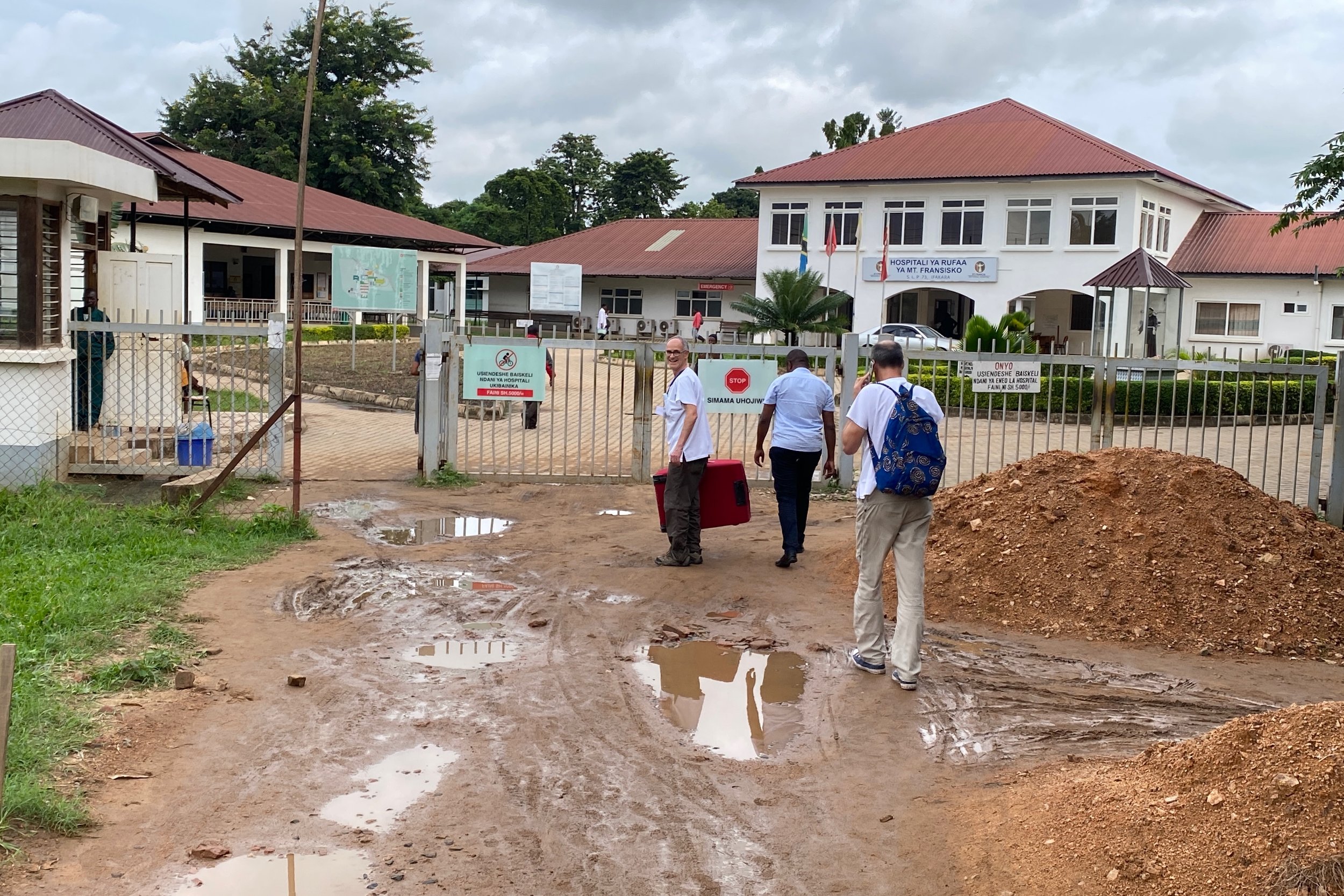
Vascular Project at St. Francis Referral Hospital in Ifakara, Tanzania
A Swiss Surgical Teams Project
Background.
Since 2010 The St. Francis Referral Hospital has been appointed as the District Hospital of Morogoro, one of 9 Tanzanian district hospitals. It belongs to the Roman Catholic Diocese of Ifakara. It is responsible for the medical care of Kilombero and Ulanga districts, in other words, for about 1 Mio. people living in an area approximately as large as Switzerland.
Institution.
The key functions of the hospital with 360 beds are to provide health care services to the diseased, travel up to 200 km to receive treatment, and provide a supportive environment of learning and research in health. The hospital is part of a teaching platform for the established Medical School (St. Francis University College of Health and Allied Sciences), Tanzanian Training Centre for International Health (TTCIH) and Ifakara School of Nursing. A long-term collaboration with the Swiss Tropical- and Public Health – Institute (Swiss TPH) exists. Additionally, it figures as a research site for Ifakara Health Institute (IHI). In conclusion, with its recourses, the campus builds a unique environment for health service, training and research.
Training.
The postgraduate ultrasound education and training consists of regularly conducted workshops (POCUS, cardio- echography and vascular) organised by Martin Rohacek, MD, with primary tutors from Switzerland. During the first 5- days Vascular Ultrasound course in 2022, local physicians and clinical officers were trained. In 2023 and after MCT (Medical Council of Tanganyika) approval, the second edition of the course attracted 15 participants from all over the country, with some travelling up to 2 days to be able to participate. The workshop programme with a final MC exam can be found in the supplemental documentation. One local physician and former participant of the first vascular ultrasound course figured as a tutor during the hands-on sessions in 2023.
Need.
Ultrasound is the primary diagnostic imaging at St. Francis, and the experience level is high. However, vascular ultrasound to evaluate haemodynamics and vessel wall pathologies needs theoretical and practical training to be applied in emergency situations and also during us-guided procedures.
An additional goal during the visit to Ifakara was to evaluate the need for support regarding the newly created Hemodialysis Unit that received four hemodialysis devices from an Indian company. However, lack of experience in assessing patients for an arteriovenous fistula (AVF) and limited knowledge about the creation techniques from surgical colleagues lead to short-term catheter HD with multiple complications such as infection and dysfunction.
Vascular Access Creation.
The workshop curriculum contained detailed theoretical and practical training to evaluate patients before the creation of arteriovenous fistula (AVF). To train local surgeons, a total of 8 AVFs have been created in 2022 and 2023. A retrospective evaluation showed that 4 AVF matured and were used for hemodialysis. Three did not mature, with one postoperative bleeding, following immediate ligation and two subsequent occlusions. In one patient, maturation has still to be evaluated.
Future.
Ifakara presents a very supportive and motivated atmosphere from medical and administrative points of view. The professional workshop organisation reached European standards with adequate ultrasound devices and technical support. There is much potential regarding knowledge transfer to support a long-term project of up to 5 years.
Future
Our goals.
Reaching the level of “teach-the-teachers” regarding Vascular Ultrasound with subsequent tutoring and presenting by local physicians
Independent evaluation and creation of arteriovenous fistulae for hemodialysis
Implementation of ultrasound-guided regional anaesthesia techniques and establishing standards in general anaesthesia
SOP implementation in intermediate care unit
Your support.
Your donation will be used to finance:
Equipement (medical devices & surgical instruments)
Education materials
Travel expenses
Scholarships
